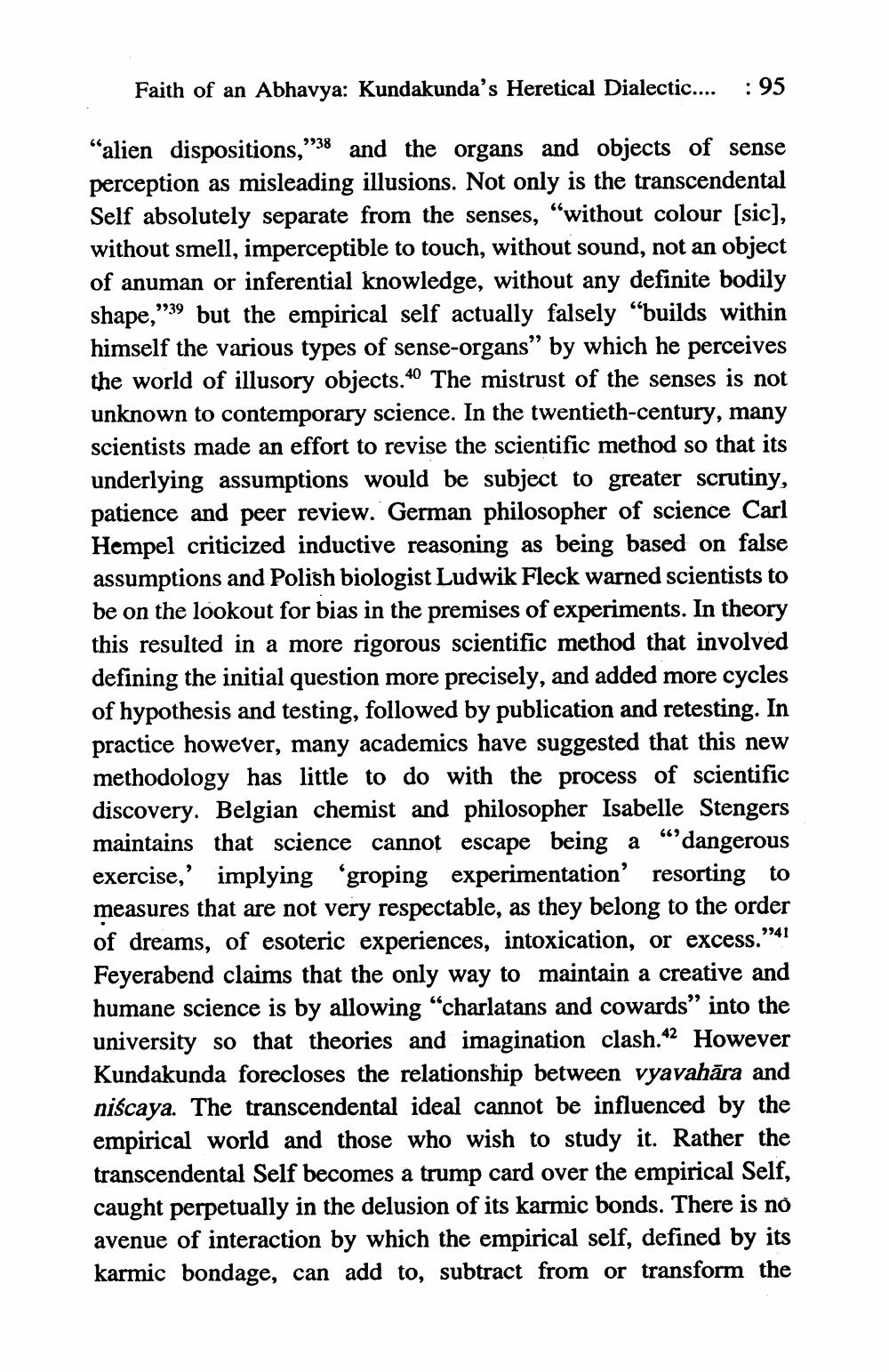________________
Faith of an Abhavya: Kundakunda's Heretical Dialectic....
"alien dispositions,' ,"38 and the organs and objects of sense perception as misleading illusions. Not only is the transcendental Self absolutely separate from the senses, "without colour [sic], without smell, imperceptible to touch, without sound, not an object of anuman or inferential knowledge, without any definite bodily shape,' ,"39 but the empirical self actually falsely "builds within himself the various types of sense-organs" by which he perceives the world of illusory objects.40 The mistrust of the senses is not unknown to contemporary science. In the twentieth-century, many scientists made an effort to revise the scientific method so that its underlying assumptions would be subject to greater scrutiny, patience and peer review. German philosopher of science Carl Hempel criticized inductive reasoning as being based on false assumptions and Polish biologist Ludwik Fleck warned scientists to be on the lookout for bias in the premises of experiments. In theory this resulted in a more rigorous scientific method that involved defining the initial question more precisely, and added more cycles of hypothesis and testing, followed by publication and retesting. In practice however, many academics have suggested that this new methodology has little to do with the process of scientific discovery. Belgian chemist and philosopher Isabelle Stengers maintains that science cannot escape being a dangerous exercise,' implying 'groping experimentation' resorting to measures that are not very respectable, as they belong to the order of dreams, of esoteric experiences, intoxication, or excess.' Feyerabend claims that the only way to maintain a creative and humane science is by allowing "charlatans and cowards" into the university so that theories and imagination clash.42 However Kundakunda forecloses the relationship between vyavahāra and niscaya. The transcendental ideal cannot be influenced by the empirical world and those who wish to study it. Rather the transcendental Self becomes a trump card over the empirical Self, caught perpetually in the delusion of its karmic bonds. There is no avenue of interaction by which the empirical self, defined by its karmic bondage, can add to, subtract from or transform the
9941
669
: 95




